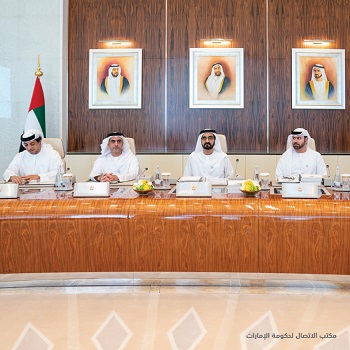Media Center
Dangerous animal breeding limited to specialists: Cabinet
The UAE Cabinet has approved the executive regulations of the Federal Law for the Regulation of the Possession of Dangerous Animals in the UAE in support of ensuring security and safety in society.
The move falls within the framework of organising the possession and circulation of dangerous animals, and protecting individuals and society from their dangers, which may border on posing threats to human life, as well as preserving these animals as a fortune to be cared for, and ensuring their breeding and circulation is not left to non-specialists or those lacking experienced in this regard.
In more detail, Resolution No. 15 of 2019 on the executive regulations of Federal Law No. 22 of 2016 on the Regulation of Dangerous Animals Possession, which includes 12 articles detailing the requirements for the transport of dangerous animals and their places of accommodation, as well as measures for their seizure, care and disposal, has been approved
. Under the law and regulations, individuals are not allowed to possess dangerous animals.
The regulations exclude licensed establishments such as zoos, animal parks, circuses, specialised care and accommodation centers, scientific research centers and institutions.
The Ministry of Climate Change and Environment shall be in charge of licensing establishments concerned in accordance with the regulations and requirements specified by the Executive Regulations.
The regulation also prohibits the organisation of public exhibitions, competitions or offers of dangerous animals for any purpose, including advertisements without the prior consent of the competent authority, the presentation of dangerous animals in the event of a pandemic or contagious disease.
They are subject to precautionary measures and contingency plans. The resolution states that licensed facilities shall provide animals with necessary health care and immunisation against diseases. It also sets a number of conditions for sheltering dangerous animals, including, but not limited to, that shelters should be pollution-free, cleanable, and protected from weather fluctuations.
Shelters should also have adequate space and ventilation, and ensure general safety conditions.


